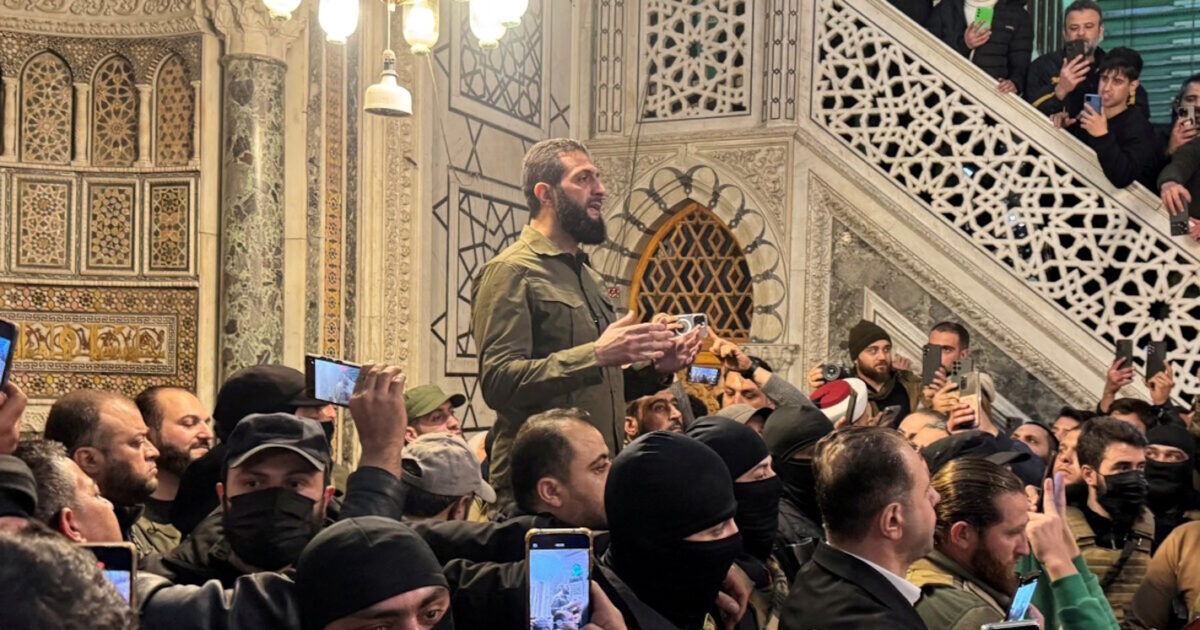OR organization of the rebel leader in Syriaby Abu Muhammad al-Jolani, is putting its stamp on the Syrian state as quickly as it managed to take over much of the country, deploying its own police force, installing members of its own in government posts and holding meetings with foreign envoys, raising doubts about whether the new leaders will allow other groups to participate in the transitional government.
After Hayat Tahrir al-Sham (HTS) ousted Syrian President Bashar al-Assad on Sunday, its bureaucrats—who until last week were responsible for the Islamic governance of a remote corner of northwestern Syria—have moved into government offices in Damascus.
His appointment Mohammed al-Bashir, of the head of the regional government of Idlib, an HTS stronghold, as Syria’s new transitional prime minister confirmed that the organization of the jihadists is the most powerful from the armed groups that have been fighting for more than 13 years to overthrow Assad.
Although HTS was branch of al Qaeda pSyria until 2016, when it severed ties with it, during its advance on Damascus it assured local officials, as well as Syrian citizens, that it would protect minorities. Al-Jolani keeps repeating this message.
From the Damascus governor’s office, the man who came from Idlib to take charge of the Syrian capital dismissed concerns that the country was headed for an Islamic government.
“There is no Islamic governance. After all, we are all Muslims and these are political institutions or ministries,” said Mr Mohammad Ghazal, a 36-year-old civil engineer who grew up in the United Arab Emirates and speaks fluent English.
“We have no problem with any ethnicity or religion,” he added. “The one who created the problem was the (Assad) regime,” he estimated.
But the way HTS is shaping the new transitional government—bringing in high-ranking officials from Idlib—has worried some.
Four opposition sources and three diplomats told Reuters that they are concerned that the transition process so far is not inclusive.
Bashir has said he will remain prime minister until March. But HTS — designated a terrorist organization by the US, Turkey and other countries — has not clarified key details of the transition process, including thoughts on drafting a new constitution.
“You bring ministers of one color, others should also participate”, commented o Zakaria Malachifzi secretary general of the Syrian National Movement, which previously provided political advice to rebels in Aleppo. Besides, he estimated that it is a mistake that HTS does not hold consultations on the formation of the transitional government.
“Syrian society is made up of many cultures, ethnicities, so frankly that worries me,” he said.
“It’s just debris”
Like other members of the Salvation Government in Idlib, which is close to HTS, who have taken government posts, Ghazal said he assured workers in the Damascus governor’s office that things would not change and asked them to return to work. . “This is a state that has collapsed. It’s just debris, debris, debris,” he stressed.
Police officers from Idlib have been deployed on the streets of Damascus in an attempt to restore order after HTS asked the armed groups to leave the city.
Although HTS is the main Syrian rebel organization, there are others active in the country, mainly in the areas bordering Turkey and Jordan.
During the civil war, these armed groups fought against each other, with rivalries and hostility between them remaining and posing risks to the stability of Syria in the post-Assad era.
THE Yezid Saigh, of the Carnegie Middle East Center, assessed that HTS “is clearly trying to maintain its momentum at all levels.”
“Having HTS set the priorities and decide the pace of the transition carries risks. One of them is to impose a new authoritarian way of governing, this time Islamic.”
An opposition source with knowledge of HTS processes said all of Syria’s minorities would be represented in the transitional government.
In an interview yesterday, Wednesday, (11.12.24) with the Italian newspaper Il Corriere della Sera, Bashir stated that “we will remain (in power) until March 2025.”
The priorities of his transitional government will be the restoration of security and state institutions, the return of millions of Syrian refugees and the provision of basic services to citizens.
When asked if the country’s new constitution will be IslamicBashir replied that “these details” would be clarified during the constitution-making process.
The government of the American president Joe Biden called on HTS not to take over the leadership of Syria, but to follow an inclusive process to form a transitional government.
The US Secretary of State, Anthony Blinken he also estimated that the transition in Syria should lead to “a credible, inclusive and non-dogmatic government”.
A diplomat in Damascus, however, pointed out that HTS is the only organization that has meetings with foreign delegations. “We are worried, where are the other heads of the political opposition?” he asked.
Another diplomat assessed that HTS’s messages to citizens are positive, but expressed concern about lack of inclusion in the transitional government.
THE Joshua Landisa Syria expert and head of the Center for Middle East Studies at the University of Oklahoma, said al-Jolani “must impose his authority immediately to avoid plunging (the country) into chaos.”
“But it should also try to strengthen governance capacities by using technocrats and representatives from various communities,” he added.
